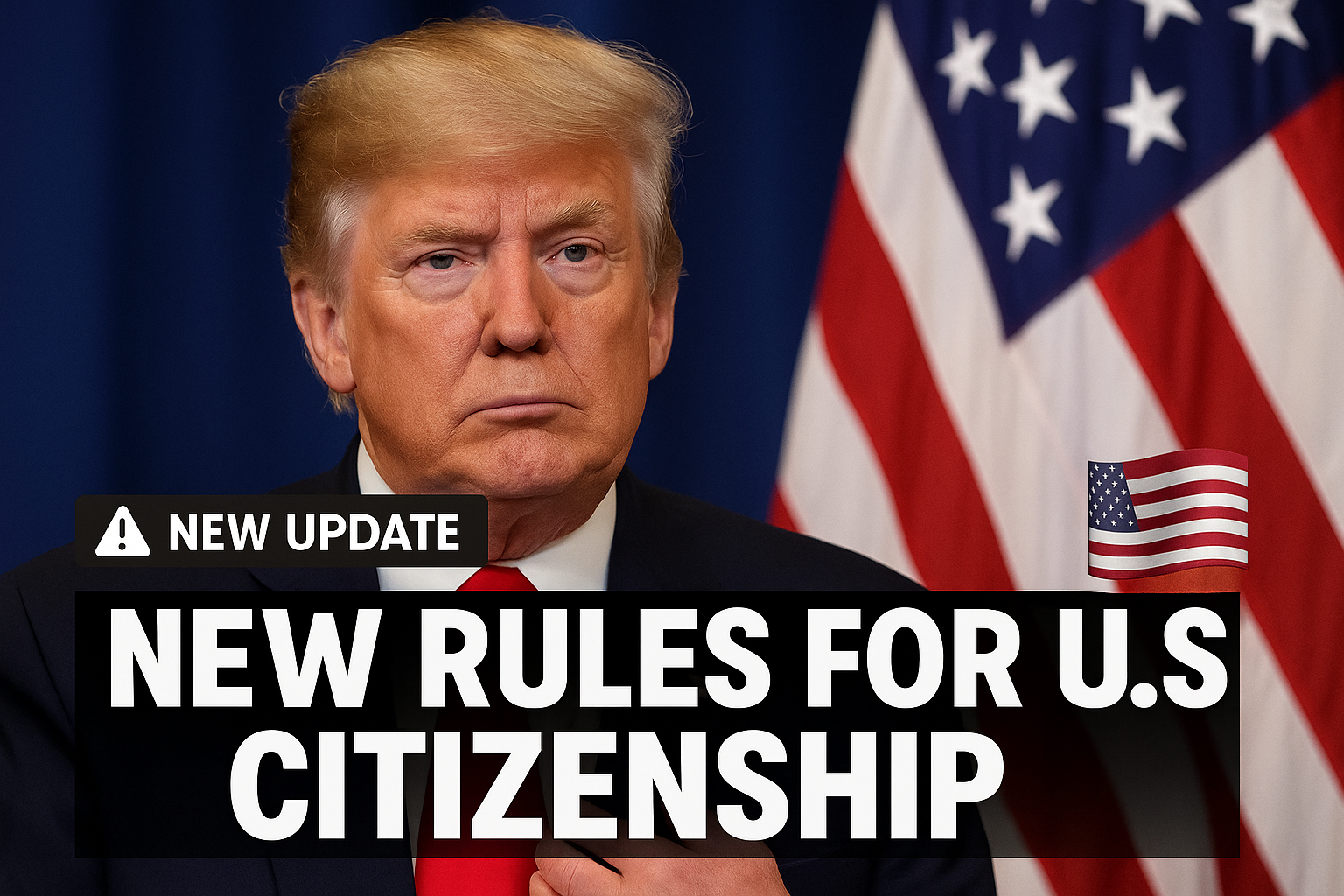The Trump Administration has announced major changes to U.S. citizenship rules, sparking widespread debate about who qualifies, how the process works, and what it means for future immigrants. These new policies are part of a broader effort to tighten immigration laws and redefine eligibility for naturalization in 2025 and beyond.
What Has Changed?
The new rules aim to raise the bar for naturalization while ensuring that citizenship applicants meet stricter requirements. Key changes include:
- Extended Residency Requirements – Longer waiting periods before applying for citizenship.
- Stricter Language & Civics Testing – Applicants must demonstrate higher proficiency in English and U.S. history.
- Good Moral Character Expansion – Broader review of applicants’ legal and financial records.
- Limits on Birthright Citizenship – Narrower interpretation for children born to non-citizens in the U.S.
- Stricter Military Service Pathways – New verification steps for those applying through military service.
Why Now?
Administration officials argue these measures are designed to:
- Strengthen national security.
- Ensure new citizens are fully integrated.
- Address concerns about immigration fraud and overstays.
Critics, however, say the changes could disproportionately impact low-income immigrants and delay the path to citizenship for thousands.
Who Is Affected?
| Applicant Group | Impact of New Rules |
|---|---|
| Legal Permanent Residents (Green Card Holders) | Longer residency wait before applying |
| Students & Work Visa Holders | More difficult to transition to citizenship |
| Children of Non-Citizens Born in U.S. | Stricter eligibility checks |
| Military Service Members | More documentation required |
| Refugees & Asylees | May face additional background checks |
Frequently Asked Questions (FAQ)
Do these rules affect current U.S. citizens?
No. These rules only apply to individuals applying for citizenship going forward.
When do the changes take effect?
The administration says the new rules will begin implementation in phases starting late 2025.
Can children born in the U.S. still get citizenship automatically?
Yes, in most cases. But children of non-citizens may face stricter documentation requirements.
Will naturalization fees increase?
Proposals are being considered to raise application fees, though no final numbers have been set.
Can these rules be overturned by a future administration?
Yes. Citizenship policies are shaped by both law and executive policy, meaning future administrations or court rulings could alter them.
Key Takeaway
The Trump Administration’s new rules for U.S. citizenship mark a significant shift in immigration policy. While the stated goal is to ensure strong national security and civic integration, the changes could make the process more complex, expensive, and time-consuming for many aspiring Americans.
